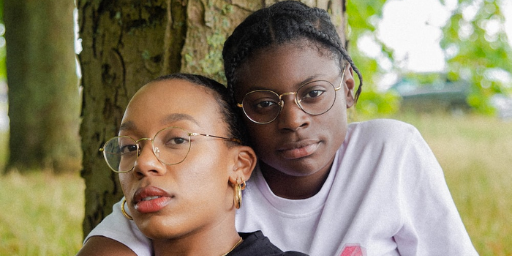They may have been funny at first, but Comrade memes have drawn criticism on the internet as symbols of bullying, misogyny and hate. What changed?
When Comrade memes launched into Nigerian Twitter, it was hard to ignore the similarities between the green frog head — laughing with abnormally large teeth — and the now infamous Pepe the Frog. It’s pretty much Pepe’s smiling cousin.
The comrade meme was mostly used in friendly football banter. But then it blew up, and even fun contests were made in true meme fashion.
So what changed?
In December 2021, a Twitter user posted a screenshot outing a man who had sent her nude photos. She was trolled, harassed, bullied for exposing her harasser. Shortly after, she tweeted pictures of herself in a skimpy outfit, and in minutes, several comrade memes were edited onto her photos with lewd, insulting watermarks and caustic commentary.
Over time, the meme became a mainstay in problematic engagement online: to derail a socially conscious topic, to shut down threads made by women decrying abuse or outing abusers, to “ratio” feminists who made tweets in defiance of the patriarchy.
Threads written by people of marginalised demographics are usually derailed by garish versions of the Comrade meme. Concerned users started to denounce the memes.
But how can you even hate a meme?
Since the start of the internet, users have created — and reinvented — over-the-top images, footage and comics with the intent of making others laugh. And we get it. Memes make social media more bearable, breathe life into conversations and make context-perfect Whatsapp stickers.
Memes are an integral part of internet pop culture, but each wave is short-lived. They’re around until they’re no longer funny or until another meme takes its place.
The evolution of each meme is, however, unpredictable. Most memes are hilarious, engaging and versatile, but some eventually take on darker meaning, allowing people with harmful intentions to twist images into something sinister.
Relax, it’s just cruise — but is it, though?
To critique the comrade memes, we would have to critique meme culture. Do the memes have messages themselves? Do we stop using memes just because problematic demographics had adopted them for their unsavoury intents? What is it that makes certain memes align with controversy?
In the age of the internet, information spreads instantly and the meanings of images change just as fast. The infamous Pepe meme, for example, started out as a lovable, calm comic and morphed into a tool for hate, toxicity, and alt-right rhetoric — contrary to its creator’s intents.
As fun as they may be, memes can be double-edged. The same things that make them fun can also make them vessels for the darker sides of the internet — corrosive humour, bigotry, bullying, sexual harassment, etc. These downsides are often overshadowed by how benign the memes appear — “Relax, it’s just a meme.”
So do we throw the comrade meme away?
The transient nature of meme culture makes it impossible to predict its usage. However, attempting to understand — or even empathise with — the criticism of memes deemed problematic is what will steer helpful conversations forward.
Much too often, marginalised groups are targeted by internet trolls armed with memes. If so many people hide behind a particular meme to make harassment seem agreeable due to humour, perhaps it is not a huge ask to pause and ask why?
Sometimes, we tend to focus on just the content we look at — just the photo, the gif, the videos, the Quote retweets on Twitter, the “coldness” of the ratio — rather than the very real people being affected by them.
Memes aren’t going anywhere anytime soon. The Comrade will come and go. New ones — and their iterations — will dominate the internet. No one is saying don’t have fun. But at some point, we may need to pause and think beyond the pixels, the ratios, and the excitement — about how real people are being hurt unprovoked — and how our “cruise” may make that hurt worse.



 (@chemicalbrodar)
(@chemicalbrodar) 




